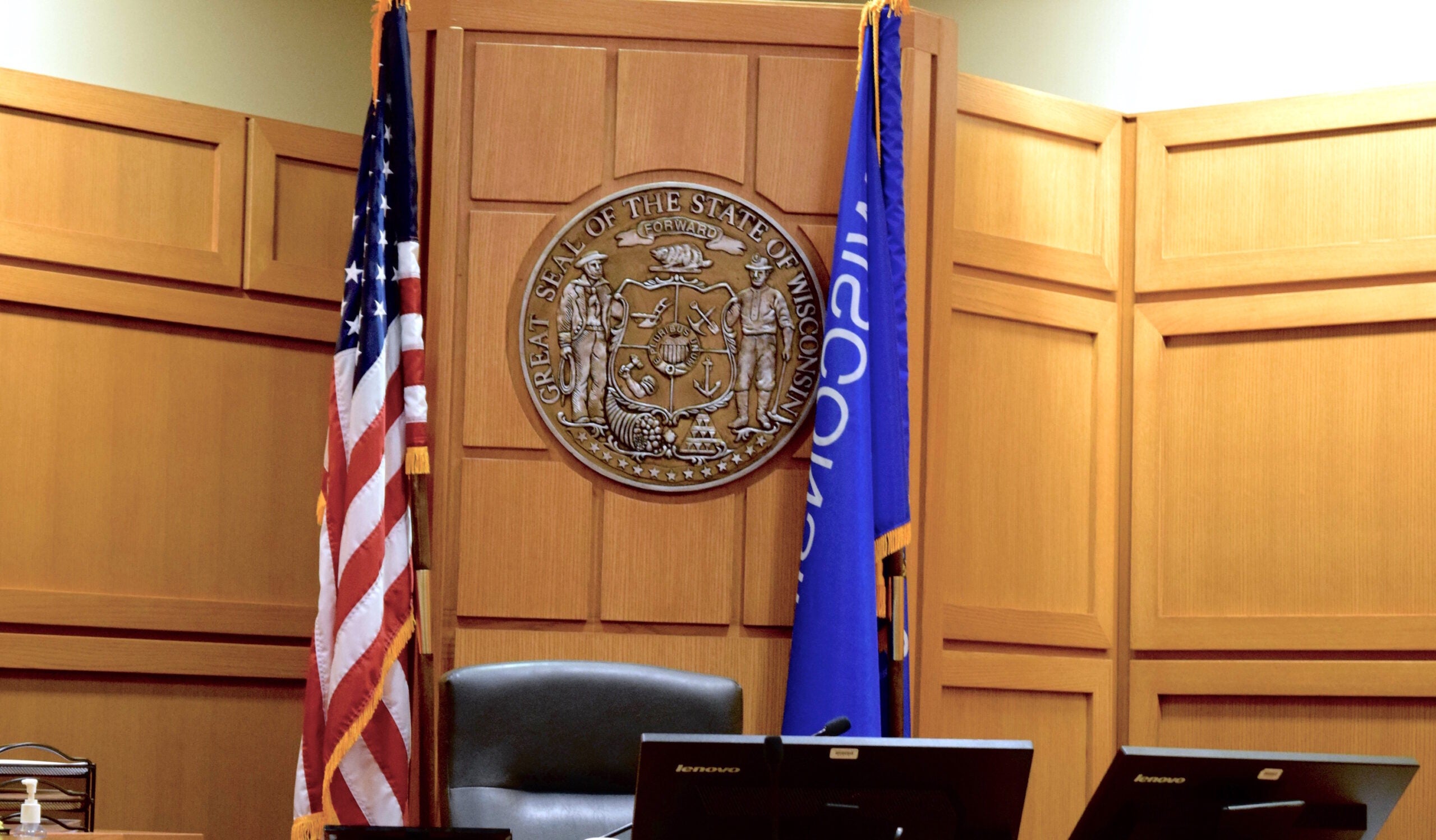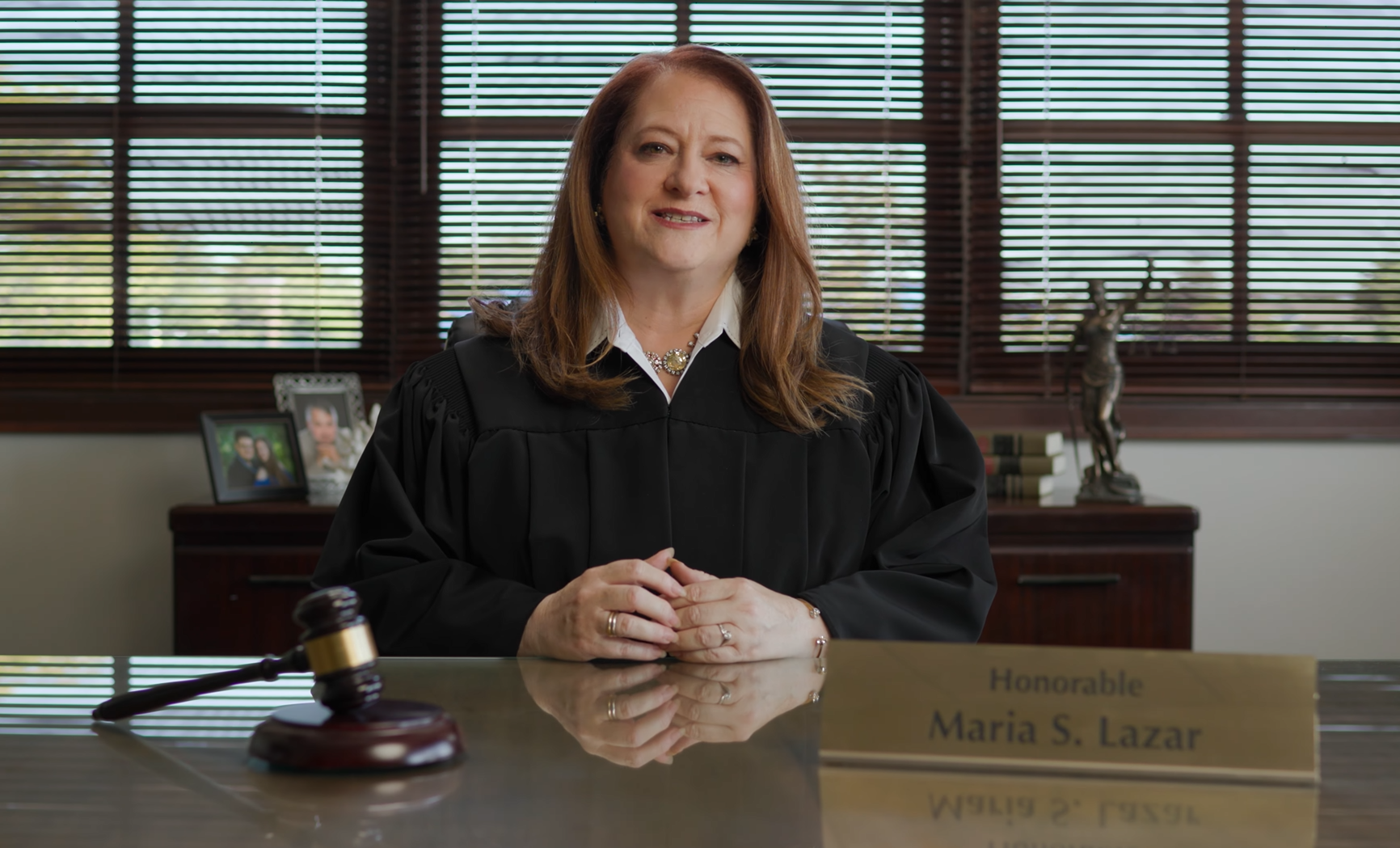Attorneys and judges from throughout Wisconsin told the Wisconsin Supreme Court Wednesday that the state’s funding for public defenders and other court-appointed lawyers was so low that it had created a constitutional crisis.
The state pays private attorneys $40 per hour to take public defender cases, which is the lowest in the nation. Other court-appointed lawyers are paid $70 per hour by county governments.
The result, advocates say, is that many lawyers won’t take these cases, violating defendants’ constitutional right to an attorney.
News with a little more humanity
WPR’s “Wisconsin Today” newsletter keeps you connected to the state you love without feeling overwhelmed. No paywall. No agenda. No corporate filter.
“We have incarcerated defendants who are appearing without a lawyer,” said Crandon attorney Henry Schultz. “We have counties where it takes weeks and it takes months to find a lawyer.”
“When you have a denial of counsel – and that is a denial of counsel – you have a constitutional crisis,” Schultz said.
A petition before the state Supreme Court would set a rate of $100 per hour that would take effect immediately for court-appointed lawyers with the hope that the Legislature and the governor would respond by matching that rate for public defenders.
The plan does not include any funding, meaning county governments would to pay for the increase themselves, possibly by cutting budgets elsewhere.
Wisconsin Counties Association lobbyist Marcie Rainbolt told justices that would be unfair and unmanageable, forcing counties to do more with less.
“We’re not denying that the rate is low,” Rainbolt told justices. “We’re not denying that this shouldn’t be changed. What we’re saying is to fiscally put this burden on the counties in hopes that the Legislature will take action is not fair to us.”
Several justices said that they, too, are concerned with the level of pay for public defenders and court-appointed lawyers. When the Wisconsin Supreme Court last addressed the issue in 2011, it found that unless the crisis was addressed, it could “compromise the integrity of our justice system.”
But on Wednesday, Justices questioned whether it was their place to act on the issue.
“I’m with you,” said conservative Justice Dan Kelly “I think $40 is abysmal. I’m not sure $100 is enough. But the question is whether the court has the authority to tell a county or the state how much money to appropriate to pay for counsel.”
Fellow conservative Justice Rebecca Bradley shared similar concerns.
“The issue I have and I think other justices have is we don’t have the power of the purse,” Bradley said. “What are the limits of our authority? Where does it stop?“
Milwaukee attorney John Birdsall, who drafted the petition with Schultz, responded that it was up to the court to make that call.
“Your authority is to save the system,” Birdsall said. “And if you see it imploding before your very eyes, then you have to take action.”
Birdsall said a decisive stand by the court would show leadership on the issue.
But there are other complications with the request before the court.
Because it is a petition and not a lawsuit brought on behalf of people who have been harmed by the shortage of public defenders, several justices indicated they were unwilling to declare the entire system unconstitutional.
Additionally, if the hourly rate for court-appointed lawyers is raised immediately to $100, it will likely become even harder to find attorneys to work as public defenders for $40.
Lancaster attorney Jeremiah Meyer-O’Day said he had spent about $250,000 on law school, and he couldn’t afford to run a small private law office on what he makes from public defender cases.
“I would like to take public defender cases, but I will have to severely limit them,” said Meyer-O’Day. “Because as a business decision, it makes no sense to take a large number of cases that you actually have to pay for the privilege of working on.”
Bayfield County Judge John Anderson said the current system has become so bad that some people sat in his jail for six to seven weeks without a lawyer.
Anderson said he keeps waiting for one of them to file a motion in state or federal court claiming their constitutional right to an attorney had been violated.
“But the trouble is, when there’s no lawyer, there’s no motion,” Anderson said.
Wisconsin Public Radio, © Copyright 2026, Board of Regents of the University of Wisconsin System and Wisconsin Educational Communications Board.




